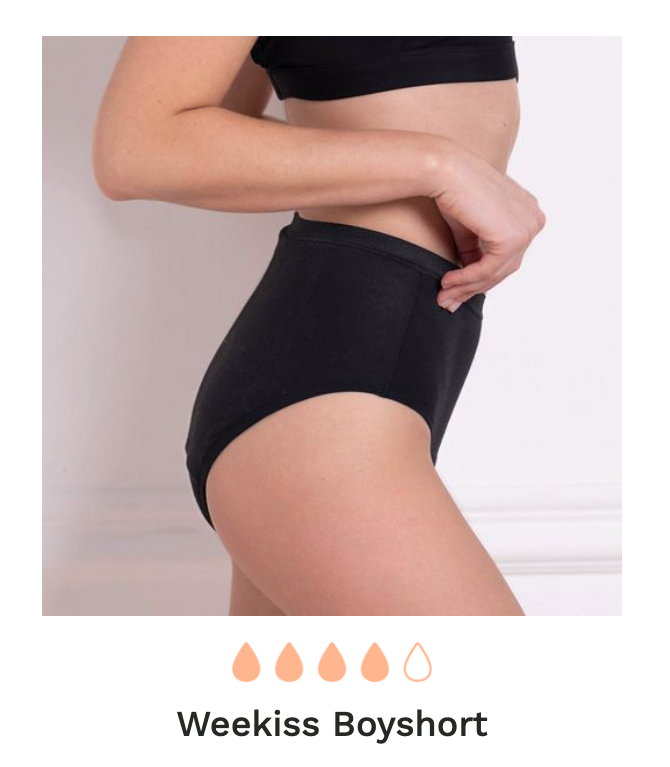Regular gynaecological examinations are an indispensable part of women's health care.
When and how often you should go to the gynaecologist and what you can expect there is explained below.
Gynaecological check-ups - the most important things at a glance
- From the age of 20, women should have a gynaecological check-up once a year.
- In addition to an anamnesis interview, the screening appointments include examinations of your abdomen.
- If you have any complaints, you should of course see your gynaecologist outside of the scheduled check-ups.
- Young women should be examined if they have not yet had their first period at the age of 16.
- From the age of 30, annual breast cancer screening, which is covered by your health insurance, is also highly recommended.

How often should women go for a check-up?
From the age of 20, you should generally have a check-up with your gynaecologist once a year. This applies even if you have no complaints and your cycle is completely normal.
Regular check-ups ensure that any health problems can be detected and treated at an early stage.
If you are on the pill, it is usually recommended that you have a check-up twice a year.
Reasons for unscheduled visits
It goes without saying that an unscheduled visit to your gynaecologist may be necessary for a number of reasons. If you have severe menstrual pain or other abnormalities during your cycle, you should not hesitate to go for a check-up.
After all, complaints such as pelvic pain can indicate a serious health problem, such as endometriosis or cysts. In this case, a timely diagnosis enables early treatment and can sometimes have a decisive influence on the prognosis.
So don't take your symptoms lightly, and if in doubt, don't hesitate to contact your gynaecologist.

When do young women need to see a gynaecologist?
The first menstrual period, called menarche, does not come at the same time for all girls. So it's perfectly normal for it to start a little later in some adolescent women.
However, if it is still late at 16, it is recommended that you see a gynaecologist to check for possible health problems.
Apart from that, young women should of course consult a gynaecologist if they suffer from any complaints or would like to use the pill in the future.
Procedure of the screening appointments
In most cases, the normal screening appointments always run more or less the same way. After a few times you should be used to everything.
As a rule, your pulse and blood pressure will be taken first, before your gynaecologist will ask you about your menstrual cycle and any complaints you may have, such as unusually heavy menstruation. Other possible topics of discussion include things like possible illnesses, the contraceptive method you use or previous pregnancies. Depending on how long the gynaecologist has known you, one or two questions may not be necessary.
If you need to talk about this, you can also talk to your gynaecologist about topics like sexual problems or ask her how you can counteract possible PMS symptoms. In this case, we recommend that you write down your questions beforehand so that you don't forget anything during your discussion.
Routine check-ups with your gynaecologist
After your consultation, you will go back to your gynaecologist to make it easier for her to examine your abdomen. Now it's time for you to free yourself and take a seat in the gynaecologist's chair. For the examinations, the gynaecologist will use a speculum and a colposcope, among other things.
The speculum is one of the utensils that no gynaecologist's office should be without. It is made of metal and is inserted into the vagina so that your gynaecologist can take swabs of the cervix and vaginal wall and then examine them. 
Using a coloscope, which consists of a magnifying glass and a light, she can also do a visual examination to see if there are any abnormalities.
Your gynaecologist will then feel your vagina, fallopian tubes, uterus and cervix to see if there are any changes. Of course, she will wear gloves and use lubricant so that the examination is not too uncomfortable for you.
Breast cancer screening after the age of 30
Breast cancer is the most common form of cancer in women. So you should take breast cancer screening seriously. From the age of 30, your statutory health insurance will cover the costs of an annual breast exam, which is usually carried out by your gynaecologist.
From your 50th birthday, you are also entitled to an X-ray examination of your breasts every other year. For this so-called mammography screening, you usually have to go to a specialised examination centre.
Check-ups with your gynaecologist - our conclusion
As you can see, regular visits to your gynaecologist are important. You should therefore not simply skip them out of convenience, even if everything may be fine with you at the moment. Regardless of this, you should always see your gynaecologist if you are suffering from any symptoms or are worried about any abnormalities in your cycle.






